In the history of the sport, Kapil Nikhanj Dev, a former Indian cricket captain, and the player are one of the legends. It is safe to say that he is the greatest all-rounder in the history of Indian fast bowling. As a result of his competitive approach to playing cricket with proper hard work, all cricketers change their mindsets, no matter if they play with him or think of him as their role model.
An outstanding right-handed batsman and right-arm fast bowler, he was known as the Haryana Hurricane. It will always be remembered for the ferocity of his outswings, his aggressive batting, and his role in leading the Indian team to victory at the 1983 World Cup.
| Born: 6 Jan 1959 | Nationality: Indian |
| Years Active: (1978–1994) | Birth Place: Chandigarh, India |
| Height: 6 ft 0 in | Role: All-rounder |
| Batting Style: Right-Handed Bat | Bowling Style: Right-arm Fast-Medium |
| Nickname:The Haryana Hurricane, Kapil Paaji, Kaps |
Kapil Dev was born to Ram Lal Nikhanj and Raj Kumari Lajwanti. Ram Lal, his father, was born in Pakistan, and he worked as a teak merchant. In 1947, Ram Lal's family moved to India during the partition. Kapil Dev’s mother Raj Kumari Lajwanti was a homemaker. There was a close bond between Kapil and his mother.
In 1980, Kapil Dev married Romi Bhatia. Their relationship is one of the best in India, and they have never had any major fights. On 16th January 1994, the couple welcomed their daughter Amiya into the world.
Kapil Dev Nikhanj was born in Chandigarh, India. His mother, Raj Kumari, was born in Pakpattan, Pakistan, and his father, Ram Lal Nikhanj, was from Dipalpur, Pakistan. He has four sisters who were born in Pakistan. In the aftermath of the partition, his family moved to India and settled in Fazilka, Punjab. Two of his brothers were born after his family got settled in India. His father was a well-known timber merchant. Later, the family moved to Chandigarh, where Kapil was born. Kapil attended D.A.V school and joined cricketer, Desh Prem Azad for classes. From these classes, he learns the most about cricket and geared up his strengths with clear vision and practice.
His Test cricket debut, made at the age of 19, was unfortunately unimpressive. Yet in the third test of the same series in 1978, he smashed a 33-ball half-century, a glimpse of the aggressive batting style that he displayed throughout his career.
He scored his maiden century in test cricket against the West Indies at Feroz Shah Kotla, Delhi, in 124 balls. The first 5 wicket haul he ever took was on his first tour of England.
In starting days of his international career, he also had some nervous patches. But, in January 1979, against the West Indies, he scored his maiden Test century with 126 runs off just 124 balls.
His five-wicket hauls against Australia and two 5-wicket hauls against England established him as India's first fast bowler. During Pakistan's 1979 tour of India, his performance made him famous. He helped India win two test matches; scoring 69 runs at Wankhede Mumbai and taking his first 10-wicket haul in the fifth test match. In 25 matches, Dev took 100 test wickets and 1000 runs during the series, becoming the youngest cricketer to achieve that feat. In 1980-81, India toured Australia where Dev sustained a groin injury before the third test match. He was supposed to take a rest, but he refused and was inducted into the team. With his bowling of 28/5, he startled the Australians. As a result, India won that match and drew the series 1-1.
Kapil Dev doesn't look back on his cricketing career as having a low point. However, he has gone through difficulties in his personal life which indirectly impacted his concentration on cricket. Those low points/problems are as follows:
Kapil Dev was made India's captain during the 1982 tour of the West Indies, replacing Sunil Gavaskar. On the other hand, India was only able to secure one ODI win during the entire tour. During the world cup, India lost only two matches; one to Australia and one to the West Indies. It was his captain's innings of 175 runs in just 138 balls against Zimbabwe that turned the tide for India.
In the semifinals, India defeated England by six wickets, and in the final, it faced the West Indies. After getting 183 runs all out and Dev only scoring 15 runs and taking one wicket, India went on to win the World Cup after restricting the West Indies to 140 runs.
It was the first time an Indian captain had done so for India. That's why everyone loves and respects him. It is because he is one of the most selfless captains in the world.
Test Cricket
ODI Cricket
Kapil Dev retired in 1994. Upon retiring in 1994, he took up golf and was the only Asian founding member of the Laureus Foundation. He was also appointed as India's coach in 1999, but after a string of bad results and allegations of match-fixing, he left the role.
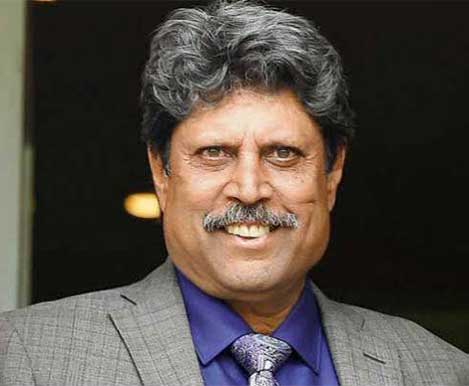
It is undoubtedly true that Kapil Dev was India's greatest pace bowler, as well as their greatest fast-bowling all-rounder. Certainly, if he had played at any other time, he would have been recognized as the greatest all-rounder ever.
| ODI | |
|---|---|
| Matches: 225 | Run Scored: 3783 |
| Batting Average:23.79 | Top Score: 175 |
| 200/100/50: 0/1/14 | Wickets: 253 |
| T20 | |
|---|---|
| Matches: 1 | Run Scored: 1 |
| Batting Average: 10 | Top Score: 10 |
| 100/50: 0/0 | Wickets: 1 |
| Test | |
|---|---|
| Matches: 131 | Run Scored: 5248 |
| Batting Average: 31.05 | Top Score: 163 |
| 200/100/50: 0/8/27 | Wickets: 434 |
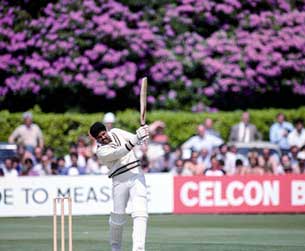
Sachin Tendulkar of India fields during the 2011 ICC Cricket World Cup Group B match between India and the Netherlands at Feroz Shah Kotla stadium on March 9, 2011 in Delhi, India.

Sachin Tendulkar of India raises his bat on scoring his century during the Group B ICC World Cup Cricket match between India and South Africa at Vidarbha Cricket Association Ground on March 12, 2011 in Nagpur, India.
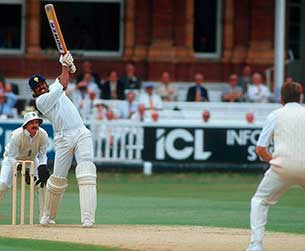
Sachin Tendulkar of India hits out watched by wicketkeeper Matt Prior of England during day five of the 4th npower Test Match between England and India at The Kia Oval on August 22, 2011 in London, England.
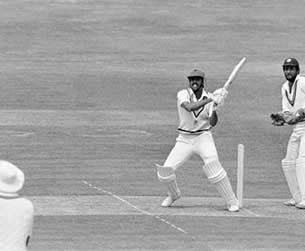
Sachin Tendulkar reach the iconic landmark of 100 international centuries against Bangladesh in the Asia Cup in 2012

Sachin's first Test century
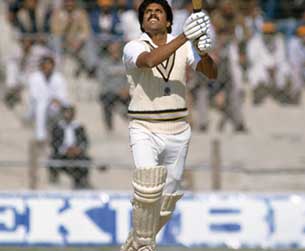
Sachin Tendulkar’s dream to hold the World Cup in his hands and in 2011 it finally happened.